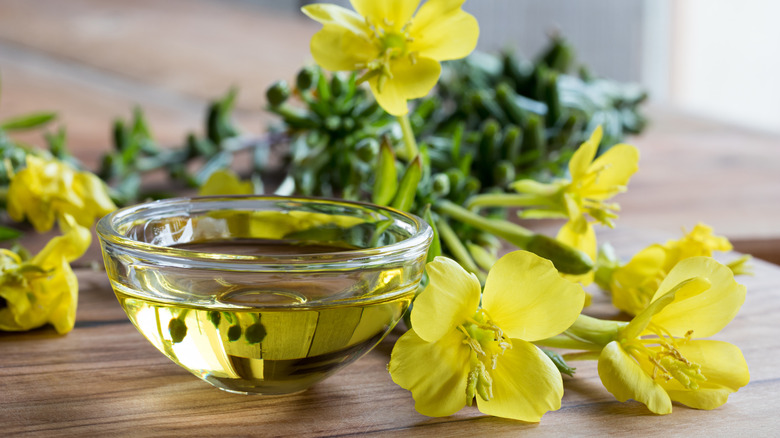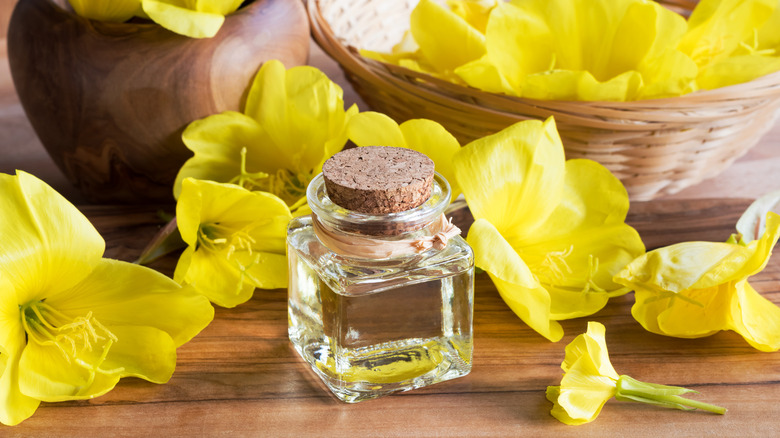As beneficial asskincare routinescan be when you find the perfect combo, figuring out exactly what works for your skin can be a nightmare.
This is certainly the case whenyou want to add facial oilsto the mix, thanks to the number of different oils there are to choose from.
Not only that, but these oils have unique benefits to certain skin types, which can be extremely confusing when you’re not so sure on whether you have normal, combination, sensitive, dry, or oily skin.

Thankfully, there is one skincare oil out there that caters to pretty much every skin key in evening primrose.
According toByrdie, this gem is a fantastic solution to aid dry and irritated skin thanks to its anti-inflammatory and moisturizing properties.
It’s also rich in linoleic acid, gamma-linoleic acid (GLA), and Omega-6 based essential fatty acids (viaHolland & Barrett).

And, according toMedical News Today, these acids can help reinforce the skin barrier, preserve water in the epidermis, prevent skin infections, and regulate sebum production.
On top of that, primrose oil has the potential to even skin tone, according to Byrdie, as well as help with acne scarring.
More studies are needed to see the benefits of primrose oil
With that in mind, you’d think that primrose oil would be theperfect antidote for those with acne prone skin.
However, board-certified dermatologist Sheila Farhang, MD, recommended toByrdiethat those with this sort of skin throw in avoid using primrose oil as it’s thick consistency isn’t the best answer to already oily and acne prone skin.
That’s not to say you could’t use it, but according to the dermatologist, it falls in the “middle range of comedogenicity” which refers to an oil’s pore-clogging potential.
However, there have been studies that suggest primrose oil is a go-to for acne prone skin thanks to its primary ingredient gamolenic acid and its anti-inflammatory properties.
But these studies have been few and far between, as Noelani Gonzalez, MD, director of cosmetic dermatology at Mount Sinai West, toldWomen’s Health.
“So, essentially more clinical studies are needed for us to say that it actually is a good acne treatment.”
She also recommends that if you were to use primrose oil, it should be in conjunction with a proven treatment like Accutane to balance out the inevitable dryness you’ll experience.